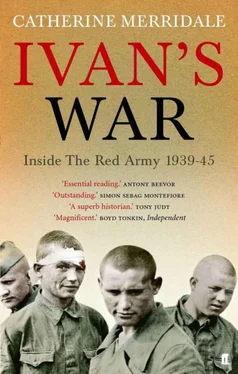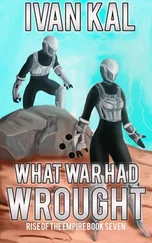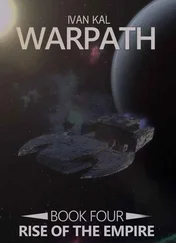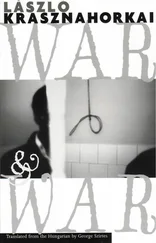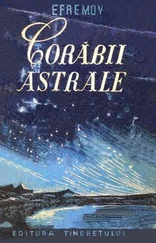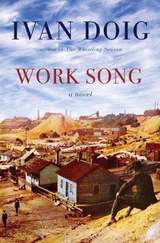Catherine Merridale
IVAN’S WAR
Inside the Red Army
1939–1945

To my father
Philip Merridale
The opportunity to research and to write this book was a privilege, and I am indebted to many people for their generosity, patience, learning and support. The greatest burden was carried by a succession of research assistants and guides in the former Soviet Union, and in particular by the sociologist Oksana Bocharova and the ethnographer Mariya Belova. Elena Stroganova continued to offer wise and imaginative support at all stages, and I am also grateful to Ekaterina Pushkina and Aleksei Shimchuk in Moscow, to Khatuna Chkheidze in Tbilisi, and to Larisa Shipico in Yalta. The material from German archives was collected with the skilful assistance of Carsten Vogelpohl in Freiburg and Thomas Greis in Bristol.
No project on this scale can succeed without funds, and I was particularly fortunate to secure the support of the United Kingdom’s Economic and Social Research Council, whose generosity enabled me to work and travel extensively in the former Soviet Union and then to read, reflect and write without the distractions of my normal university duties. The Council’s research support was invaluable in every way, and I am also grateful to the anonymous assessors who commented on my initial proposal. When I was in the process of completing the manuscript, a further period of leave, funded by the Arts and Humanities Research Board, allowed me several more months’ peace of mind, and I am also grateful to the University of Bristol and to Queen Mary, University of London, for their patience and generous financial support. I owe a particular debt to the British Broadcasting Corporation, and especially to Tim Dee, one of its senior producers, for commissioning the programmes on Stalinism in Georgia and on the Crimea that enabled me to travel and work in two beautiful locations while benefiting from stimulating company and sparkling creative advice.
One of the rewards of my travels was the opportunity to work in a range of archives and libraries. I would like to record my thanks to the staffs of the State Public History Library in Moscow, the Cambridge University Library, the British Library and the London Library. I would also like to thank the helpful staffs of the State Archive of the Russian Federation, the Russian State Military Archive, the Russian State Archive of Literature and Art, and the Russian State Archive of Social and Political History and its affiliate, the Archive of the Komsomol. In Kursk, I was fortunate to work in both the State Archive of Social and Political History and the State Archive of the Kursk region, and a similar kindness enabled me to work efficiently in both the State Archive of the Smolensk region and the Centre for the Documentation of Contemporary History in Smolensk during my short stay there. I owe a great deal to the two researchers who found documents for me in the Central Archive of the Ministry of Defence in Podolsk, and should like to thank the Bundesarchiv-Militärarchiv in Freiburg for providing rich information from documents relating to German military intelligence. Finally, I am grateful to the staff of the Russian State Archive of Cinema, Sound and Photography for allowing me to find and reproduce so many of the photographs that illustrate this book.
The lives of soldiers in war were a new research field for me. Fortunately, experts have been on hand at every stage to offer advice and comment. Among the many people whose conversation has enlivened my thinking I thank Ian Collins, Ira Katznelson, Vladimir Kozlov, Norman Naimark, David Reynolds, Artem Sheinin, Ben Shephard, Steve Smith and Simon Surguladze. Elena Senyavskaya in Moscow, whose own work continues to be an inspiration, was especially helpful in the early stages of research, as was her mentor, the ethnographer and war veteran Lev Pushkarev. I am also grateful to everyone who participated in the two workshops on culture and combat motivation that were organized at the Centre for History and Economics at King’s College, Cambridge, in 2004 and 2005. Thanks to Inga Huld Markan for organizing both meetings, and above all, as ever, to Emma Rothschild for her unfailing encouragement.
The process of turning such abundant material into a single book was always likely to be daunting. Fortunately, I have been able to count on two prodigiously gifted editors, Neil Belton at Faber and Sara Bershtel at Metropolitan Books, both of whom were on hand from the very first with comments and encouragement. The finished book owes a great deal to each of them, while the writing of it was sustained by their friendship and enthusiasm. I am also indebted to their assistants and talented staff. My agent in London, Peter Robinson, has regularly astonished me with his willingness to read and comment on drafts, sort out tangles, and supply wine and sympathy at difficult moments. I have also been fortunate to work with Emma Parry in New York, whose sympathy – and perceptive conversation – more often seems to come with tea. My father, Philip Merridale, a veteran himself, read a first draft and fearlessly reminded me whenever I was missing the point. Jasper Kingston provided companionship throughout the long process of drafting and editing. Finally, I owe profound thanks to Antony Beevor and Sir Rodric Braithwaite, each of whom made time, in the course of a busy spring in 2005, to read the finished manuscript, to add their expert comments and to correct some of the most egregious mistakes.
To work with any of these people would be privilege enough, but the unique aspect of this research was the opportunity it provided to meet and get to know the members of an extraordinary generation, the men and women who fought in the Red Army during the Great Patriotic War. I am indebted to them all, not least for the inspiration of their stories of lives well-lived, of new hope and reconciliation at the end of so much pain. Two men in particular must be remembered here. Unlike most of their comrades, whose names were altered in the text in order to preserve their privacy, these two, Lev Lvovich Lyakhov and Ilya Natanovich Nemanov, appear without disguise. For one thing, each had said that he was happy to be named, and even that he would be proud to be. They both contributed so much that nothing less was justified. It was with great regret, therefore, that I learned, as I was writing, of each of their deaths. I hope that in some way their stories here will serve as memorials to their courage, intelligence, humour, and wisdom.
The images that the old soldiers invoked still bring Russia, and even Stalin’s Russia, to life in my mind. I only have to reach for the tape of one of our conversations, for one of their admonitory letters, for a photograph, and the whole world that they described for me unfolds again in memory. For a singularly unmilitary woman, I have developed a surprising taste for old Red Army songs. The thought of the Crimean steppe or of the Dnepr cliffs brings on a sort of homesickness, as does the slightest whiff of archive dust. I have worn out a passport and two pairs of boots in the pursuit of Russia’s war, and even back in England I have often disappeared behind a wall of red-bound volumes printed with Cyrillic text. It is an odd life to ask anyone to share, let alone to understand. For all these reasons, and a great deal more, I owe an incalculable debt to Frank Payne.
(All illustrations, except those otherwise acknowledged, courtesy of the Russian State Archive of Cinema, Photography and Sound, Moscow.)
1 A soldier’s farewell to his wife and children, Don Front, 1941
Читать дальше
